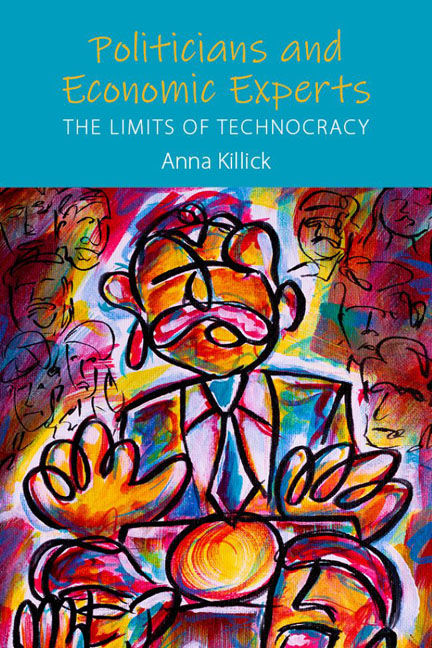3 - Politicians’ Relationships With Voters
Published online by Cambridge University Press: 20 January 2024
Summary
President Clinton taught her “that campaigns are really about people's lives, and if you don't understand people's lives you can't do good policy-making”.
(Centrist Democrat)
Ah, well. I … think that today there is perhaps a bit of pedagogical work to be done to start with. Because … there is a rise in populism.
(French Socialist)
A degree of responsiveness to voters is necessary in a representative democracy (Dahl 1971). But the key reason that economic technocrats think politicians should cede control to experts is that they are too “responsive” to voters, who have short-term rather than long-term perspectives and do not know enough to judge what is in the interests of all. Economic technocrats see voters as forcing politicians away from delivering policy that is “responsible”. What views do politicians in the five countries share about their relationships with voters and the effects these have on their ability to deliver responsible economic policy? This chapter shows how close the relationship is: politicians see voters as “the sea in which we swim”. But it also shows that, as practitioners, politicians have insights into voters that go beyond the one-dimensional version of “giving in to voters’ demands” that tends to underpin the technocratic arguments.
“Understandably” self-interested voters
A starting point is to ask politicians what they think about voters when it comes to the economy. Do they think voters demand self-interested policies? I asked the general question “How do you think voters see the economy?”. I expected that some at least would segment groups of voters in their answers, claiming that some groups see it differently from others. But, instead, they nearly all felt comfortable with staying with the idea of voters in the aggregate, as the question had phrased it. In addition, nearly every politician, regardless of nationality or ideology, answered that voters see the economy through the lens of their own well-being – effectively, that they are narrowly self-interested. There was greater unanimity on this issue than on any other question I asked. A centrist Republican says: “I mean, voters tend to look through the economy in terms of how it's impacting them directly – right? And so, how are their pay cheques – you know, are they … rising, are they falling, is their neighbour out of a job?”
- Type
- Chapter
- Information
- Politicians and Economic ExpertsThe Limits of Technocracy, pp. 35 - 48Publisher: Agenda PublishingPrint publication year: 2022

